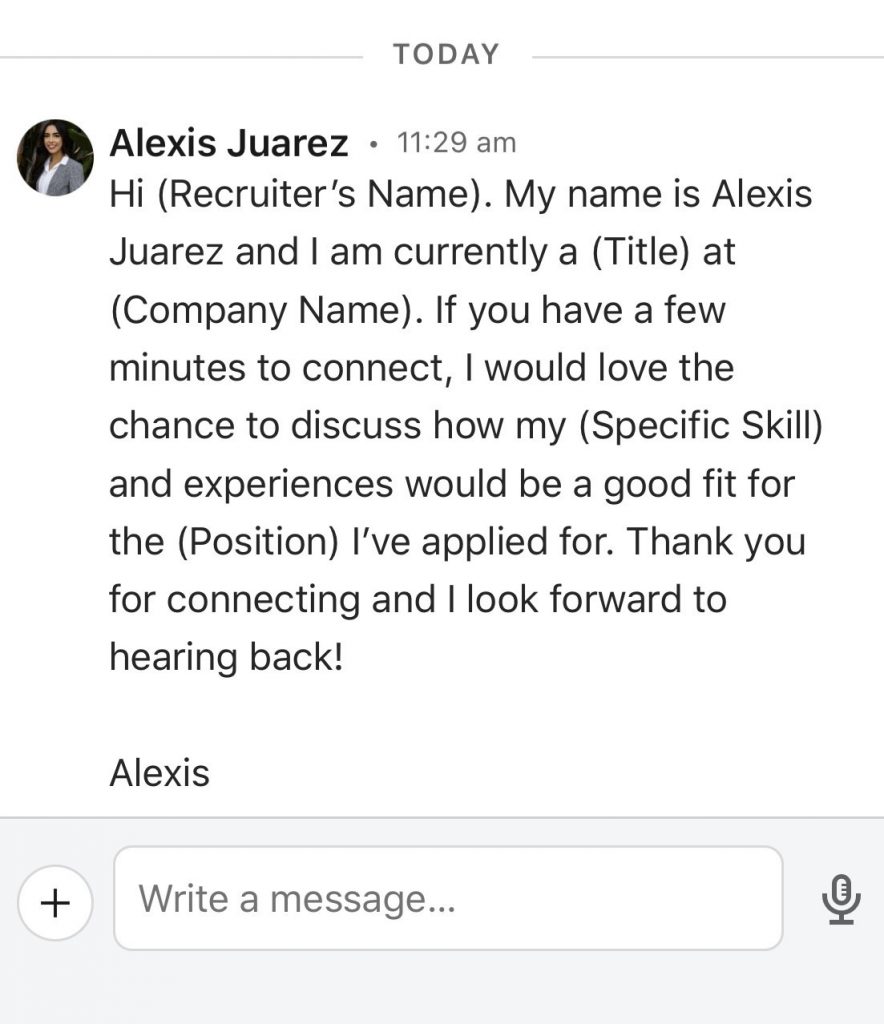How to Find Your Dream Job or Internship – Your Job Search Checklist

Whether you’re an incoming college freshman looking for an internship or a recent graduate on the hunt for that first job offer, here’s our checklist on how to find your dream job or internship. Watch the video below or continue reading.
1. Start at Your School’s Career Center
One of the first places students should visit when starting to look for their dream job is their school’s career center. According to Career Karma, between 50 and 60% of college students utilize their school’s career center or services. Career centers are filled with counselors and career experts ready to help students like you improve their professional development skills, build your resume, and update your LinkedIn profile. If you are searching for internships or jobs in the area, make sure to reach out to your school’s career counselor!
If you aren’t sure what specific industry or field you want to enter after graduation, then take the time to apply to various types of internships that align with your major. By experiencing different companies and job opportunities, you can ultimately define and solidify what you want to do. For example, if you are a marketing major, several areas you can focus on include content marketing, market research, social media marketing, product marketing, or search engine marketing.
2. Check Out Campus Clubs or Organizations
Another great tip on how to find your dream job is to join a club or organization on campus filled with like-minded individuals in pursuit of similar jobs post-graduation. Interested in joining the sports industry? Then maybe join a sports business organization or fraternity. Are you a marketing major interested in exploring your skills? Then maybe join the American Marketing Association. Surround yourself with other driven individuals that share similar career interests to build your professional network early and get a head start on finding potential job opportunities.
3. Ask Your Mentor (If You Don’t Have One, Get One)
If you don’t have a mentor already, then this is the time to get one. Whether your university has a mentorship program on campus or you have a professor or supervisor willing to be your mentor, these are both great places to start. There are many benefits to having a mentor in the industry you plan to enter, including expanding your network, learning about future opportunities, and receiving feedback.
4. Ask Your Professors
In addition to any mentors, you may have in your professional circle, keeping in contact with your professors is a great tip you can leverage for future career opportunities. Before professors decided to use their knowledge and talents to teach college students, oftentimes they had a career in their chosen discipline, so be sure to use their insights and connections to the best of your advantage.
Your professors may know of certain companies or individuals looking to hire, but it is unlikely that they are going to recommend just any student. Most likely, they’ll be willing to recommend the students that not only did well in their class, but that also showed the tenacity to regularly attend their office hours and establish a personal connection as well.
5. Put It Out in the Universe
Similar to the importance of your school’s career center, online job search tools can be just as useful. Job search tools like LinkedIn, Internships.com, and career portals such as those offered through your school’s career center may allow you to search for jobs and internships that may not be posted on the company website.
According to The Balance Careers, 37% of applicants learn about jobs from professional networks. A career portal from your school is another form of a professional network that hiring managers may post on if they are an alumnus from that university or if that specific university is within proximity to the company office.
Additionally, posting your status on LinkedIn and other appropriate social channels is a great way to put out your goals into the universe. Let your professional network know that you are in search of your first internship or first job post-graduation!
6. Check Out Top Job Sites
Aside from your university’s career portals, a few of the most well-known job hiring sites are:
- Indeed
- ZipRecruiter
- Chegg (great for internships)
- Jooble
These platforms can seem overwhelming at first with thousands of postings daily, but it is essential to play with the filters and settings to search for jobs that best fit your needs. Professional platforms make research easy with data on the companies you are interested in by sharing news, articles, and campaigns.
7. Stay Organized – Create a List
The last step in how to find your dream job is to create a list of companies that you would like to work for and apply directly on their websites.
If there are currently no open positions in a company you want to work for, then reach out to the individual currently holding that position via LinkedIn and see if you can ask them a few questions about their role and maybe what the interview process was like for that position.
Searching for a job might be stressful, but as a rule, there are always some companies that are hiring! So put in the time and effort and do your research as part of your job or internship search.
8. Stay Proactive During Your Free Time
You may be using your free time to hang out with friends, go to the beach, or read a book, but make sure you are putting time aside to work on some of your professional development assets such as your resume, cover letter, and LinkedIn profile.
Your resume should demonstrate your core competencies and skills concisely so that employers can quickly learn a little bit more about your professional career goals and understand who you might be as a future employee. Think to yourself, “How do I sell myself on a single sheet of paper?” Unlike a resume, a cover letter should highlight your core values and professional milestones, and ultimately illustrate how they relate to the specific role and company you’re applying for. Although not all positions or companies require a cover letter, including one that is well-constructed can help you land an interview over another candidate.
Update your LinkedIn Profile Now
Once those are updated, have your mentor, professor, or anyone else you trust for professional advice look over them. It never hurts to have a fresh pair of eyes review and give you feedback.
9. Don’t Be Afraid to Reach Out to Recruiters
Don’t be afraid to reach out to recruiters (I promise they don’t bite!). Their job is to connect with prospective employees that may be a good fit for a particular position at a company. It is essential to be strategic in how you are contacting a recruiter. Indeed shared four helpful tips on how to contact a recruiter: be specific, show evidence of research, keep it simple, and respect the relationship.

As you begin to narrow down the specialization you want to focus on and the industry you want to enter, it can be helpful to read books that pertain to that industry or career path. The more research you conduct, the better prepared you’ll be and more likely you’ll be to stand out among the competition.
Being strategic in your job search is essential to the future of your professional success. The job hunt may not be as fun as watching Netflix, but it will help ensure you get an internship during college and a full-time position after graduation!
For more tips on how to find your dream job, read our blog Getting Ready for Your First Job Out of College.


